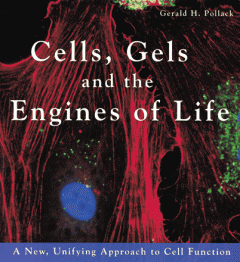
A revised vision of basic cell biology
Science fiction blends science and story, but stories and images are among the building blocks of science itself to a greater extent than most people realize. The most engaging science books tackle the narratives that scientists believe and on which they base study designs and interpretations. Cells, Gels, and the Engines of Life provides a detailed case study of how such scientific stories and simple mental images operate to guide entire fields over decades – and not always along the best available paths.
With everything from bio-engineering to bio-hazards of keen interest in the popular and science-fictional imaginations, it is important to be clear on the fundamentals of how cells work. We might have thought we already knew, but this book questions a whole list of “textbook” fundamentals and offers an alternative, integrated framework for explaining a wide range of cell functions.
Once a misguided view has been established in any field, not only in economics, but apparently also even fields such as cell biology with relatively few obvious sources of political distortion, it can take a rare blend of courage, expertise, and clarity to budge things in a new direction. This can emerge not only in the storied times of Copernicus, Kepler and Galileo, but even today. It still takes a heroic protagonist to put it all together and say it out loud against layers of convention. Meet Dr. Gerald H. Pollack, the author, professor of bioengineering at the University of Washington.
A master class in scientific thinking
Anyone with a firm reading ability can delve into this book and might be surprised, given the school-inflicted association of basic science instruction with soporific textbooks, to be sucked in on the first page. This is much more than a book about how cells work; it is a master class in fresh and precise scientific thinking, an art much in need of renaissance in an age of truth by click-through count, research-grant total, and mere widespread assertion.
[continue reading…]
Help Promote Prometheus Unbound by Sharing this Post

 J. Edgar, the new film directed by Clint Eastwood and starring Leonardo DiCaprio, is making the news for dealing frankly with the decades old rumors concerning Hoover’s private life. But that’s not what makes the film immensely valuable. Its finest contributions are its portrait of the psycho-pathologies of the powerful and its chronicle of the step-by-step rise of the American police state from the interwar years through the first Nixon term.
J. Edgar, the new film directed by Clint Eastwood and starring Leonardo DiCaprio, is making the news for dealing frankly with the decades old rumors concerning Hoover’s private life. But that’s not what makes the film immensely valuable. Its finest contributions are its portrait of the psycho-pathologies of the powerful and its chronicle of the step-by-step rise of the American police state from the interwar years through the first Nixon term.
The current generation might imagine that the egregious overreaching of the state in the name of security is something new, perhaps beginning after 9/11. The film shows that the roots stretch back to 1919, with Hoover’s position at the Justice Department’s Bureau of Investigation under attorney general A. Mitchell Palmer. Here we see the onset of the preconditions that made possible the American leviathan.
Palmer had been personally targeted in a series of bomb attacks launched by communist-anarchists who were pursuing vendettas for the government’s treatment of political dissidents during the first world war. These bombings unleashed the first great “red scare” in American history and furnished the pretext for a gigantic increase in federal power in the name of providing security. In a nationwide sweep, more than 60,000 people were targeted, 10,000 arrested, 3,500 were detained, and 556 people were deported. The Washington Post editorial page approved: “There is no time to waste on hairsplitting over infringement of liberties.”
Here we have the model for how the government grows. The government stirs up some extremists, who then respond, thereby providing the excuse the government needs for more gaining more power over everyone’s lives. The people in power use the language of security but what’s really going on here is all about the power, prestige, and ultimate safety of the governing elite, who rightly assume that they are ones in the cross hairs. Meanwhile, in the culture of fear that grips the country – fear of both public and private violence – official organs of opinion feel compelled to go along, while most everyone else remains quiet and lets it all happen.
The remarkable thing about the life of Hoover is his longevity in power at every step of the way. With every new frenzy, every shift in the political wind, every new high profile case, he was able to use the events of the day to successfully argue for eliminating the traditional limits on federal police power. One by one the limitations fell, allowing him to build his empire of spying, intimidation, and violence, regardless of who happened to be the president at the time.
[continue reading…]
Help Promote Prometheus Unbound by Sharing this Post
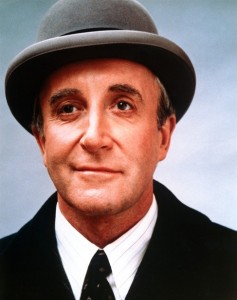
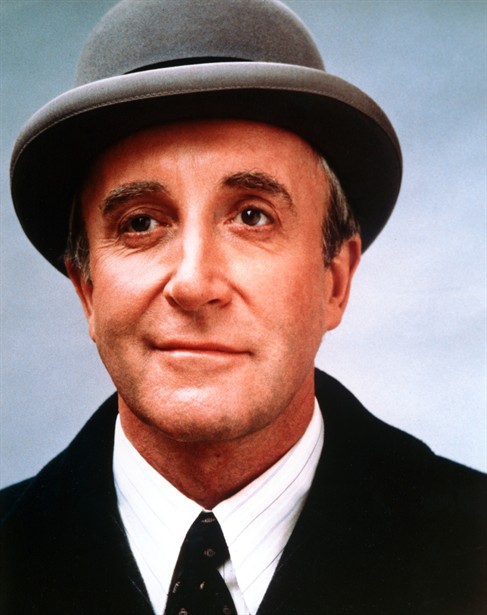 If you seek power over others, how much of an advantage does raw intelligence gain you?
If you seek power over others, how much of an advantage does raw intelligence gain you?
If you look at the makeup of the US Congress — which now has a 9% percent approval rating — or if you watch the Republican debates, you are not immediately inclined to label either the smart set. In fact, you have to be a dim bulb to repeatedly say many of the things that seem necessary for electability. On the other hand, a certain amount of cleverness is obviously necessary to outwit the media and your opponents.
Which is it? Two films that explore the relationship between power and brains are Being There (1979) and Limitless (2011). The films came out thirty years apart but deal with the same issues. Being There suggests that being dumb as a chicken is a huge advantage for those who seek political success. Limitless suggests that politics is the inevitable trajectory of a person who is far more intelligent than everyone else. Which is more realistic?
I’ll state my own view up front: politics is a gigantic waste of brains. If a person really has a gift for high-level thought, almost any profession would be a greater betterment to society and probably more self-fulfilling in the long run. Whereas it was probably once true that the political life attracted some of the best and brightest, it no longer seems true at all today.
Being There is both hilarious and serious, worth sitting down with at least once every few election seasons. Peter Sellers and Shirley MacLaine star in this adaptation of a novel by Jerzy Kosinski about an illiterate and simple-minded man named Chance who happened to be in the right place at the right time. His utterances are few and most concern what he has done his entire life, which has been to tend one garden on one estate and otherwise watch television.
[continue reading…]
Help Promote Prometheus Unbound by Sharing this Post
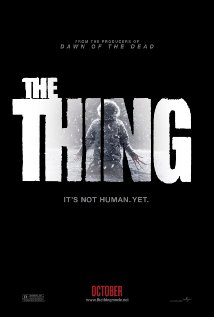
 The Thing, a remake of a remake of a solid sci-fi/horror film directed by, despite what the credits may tell you, Howard Hawks, is being projected onto silver screens in dollar theaters across the country right now. While a viewing of the movie does not immediately make clear why theater space would be made available for such a project, I strongly suspect that in the current climate of more-CGI-less-story-less-character, none of the other reels delivered to theaters contained anything more promising. In other words, for about the same reason I occasionally find myself eating broccoli. The best thing I can say for it is that there were a handful of stretches, some of them two or three minutes in duration, in which I forgot how forgettable the movie was.
The Thing, a remake of a remake of a solid sci-fi/horror film directed by, despite what the credits may tell you, Howard Hawks, is being projected onto silver screens in dollar theaters across the country right now. While a viewing of the movie does not immediately make clear why theater space would be made available for such a project, I strongly suspect that in the current climate of more-CGI-less-story-less-character, none of the other reels delivered to theaters contained anything more promising. In other words, for about the same reason I occasionally find myself eating broccoli. The best thing I can say for it is that there were a handful of stretches, some of them two or three minutes in duration, in which I forgot how forgettable the movie was.
In this third generation version, a young, good-looking scientist is asked to come to Antarctica and given no clear reason why. She is only told that it is important. When she arrives, she discovers the scientists stationed there are excavating an alien spacecraft buried in the ice a hundred thousand years ago. They have found a creature, also buried in the ice, that they believe came along with the ship. It is nothing more than a blurry form under the translucent surface, and next to nothing about it has been discovered.
They dig out a block of ice containing the extraterrestrial but, because this is sci-fi/horror, it escapes and is so unfriendly that people start dying. The rest of the movie is a desperate fight to survive in the most inhospitable environment offered on this planet that still has breathable air. For those keeping track, yes, there is a black man in this movie. No, he doesn’t make it. And that’s not a spoiler, either. As soon as I reported the monster’s escape from its prison you knew no black man was going to live long enough to read the credits.
[continue reading…]
Help Promote Prometheus Unbound by Sharing this Post

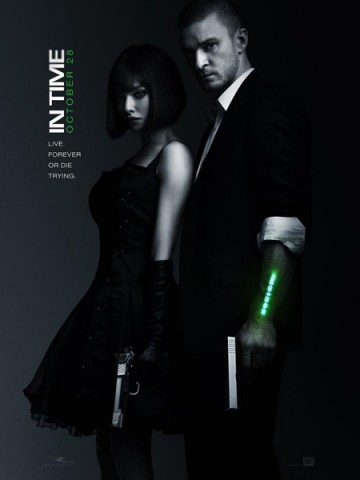
Before I studied Austrian Economics and profited from the clarity it brings to phenomena that otherwise seem chaotic and unfathomable, I read an article by Dave Barry that made me laugh. In it, he parodied the stock market, saying something to the effect of, “The DOW Jones plunged today when scientists discovered that Saturn had seven moons, and not six as previously thought.” That sentence encapsulated the mystifying and capricious vicissitudes of an economy I did not understand, much like airports stupefied the Cargo Cults. After watching In Time, it is obvious to me that writer/director/producer Andrew Niccol is mired in the same blithering ignorance that Mises and Rothbard pulled me out of.
Justin Timberlake plays Will Salas, a blue-collar man living day-to-day in a world where no one ages past 25 and time is the economy’s currency. The time you have left is measured on your forearm, and you can give and receive it either by placing your wrist over a scanner, for machine/human interactions, or gripping forearms with someone, for person-to-person transactions. The world is divided into time zones and people live in the one that pertains to their occupation and income level. As long as you have time on your forearm, you can live forever, but if you go broke, you die.
One night Will Salas saves a rich man who has wandered into Dayton, the poor time zone where Salas lives, from being robbed by so-called Minutemen, petty gangsters who steal people’s time. This man, Henry Hamilton, is 105 years old and weary of being alive. He bequeaths his century of time to Will and “times out,” but due to a surveillance camera that catches only part of the action, it looks to later observers that Will has murdered Henry. Meanwhile, on the very day her son becomes a rich man, Rachel Salas (Olivia Wilde) is caught in the middle of nowhere at night with, after making a loan payment, only ninety minutes left to live. The bus fare back home has been increased to two hours and the driver will not allow her on the bus without paying the full fare up front. None of the other passengers step forward to give her a small loan, so she is left to die. A grieving Will swears revenge on the system that killed his mother.
[continue reading…]
Help Promote Prometheus Unbound by Sharing this Post

 Diabolical, by Hank Schwaeble, is a Jake Hatcher novel, the sequel to Damnable. It takes place a short time after the events of the first novel, but in a new location. Many of the same characters are back, with a few new ones, and the recipe for the story makes use of the same ingredients in just about the same proportions. How you felt about the first book is, within a reasonable margin, how you are going to feel about its sequel.
Diabolical, by Hank Schwaeble, is a Jake Hatcher novel, the sequel to Damnable. It takes place a short time after the events of the first novel, but in a new location. Many of the same characters are back, with a few new ones, and the recipe for the story makes use of the same ingredients in just about the same proportions. How you felt about the first book is, within a reasonable margin, how you are going to feel about its sequel.
Jake Hatcher has moved out to California to lie low for a while, working as a bouncer at a bar. Despite his precautions, he is found by people who want his services. He winds up entangled in a plot where nothing is as it seems, a demonic apocalypse is at stake, and no one can be trusted. Plot twists abound, as do action and fighting sequences, a little sex is sprinkled in, and the resolution is anyone’s guess right up until the end.
There are some areas in which Diabolical is an improvement on Damnable. Though the first novel had some inspired chapter hooks near the beginning, Diabolical saves its best twists for later on. For this reason, as well as a smoother flow that eliminates a little dead weight found in the first book, the second novel reaches its climax in better fashion than the first. In particular, Schwaeble does a good job of keeping the reader guessing about certain characters. Whereas in the first one there was a general blanket of uncertainty covering nearly everything, in the second the author takes you through highs and lows, at times fabricating a specious certainty that is ripped away, only to be brought back again. If the novel were a marionette, I would say the puppet master has grown more adept at pulling the strings.
[continue reading…]
Help Promote Prometheus Unbound by Sharing this Post

Steven Soderbergh
 Steven Soderbergh directs a cast full of A-list Hollywood celebrities in the recently released Contagion. Playing into fears that to some extent are natural, while at the same time too often stoked of late by government fearmongers, it tells the story of a new virus that spreads quickly and wreaks havoc on the human race. Some very recognizable faces of the Hollywood elite turn splotchy and froth at the mouth.
Steven Soderbergh directs a cast full of A-list Hollywood celebrities in the recently released Contagion. Playing into fears that to some extent are natural, while at the same time too often stoked of late by government fearmongers, it tells the story of a new virus that spreads quickly and wreaks havoc on the human race. Some very recognizable faces of the Hollywood elite turn splotchy and froth at the mouth.
Comparisons will be made to Wolfgang Petersen’s Outbreak, but beyond the subject matter and big name actors, they do not much resemble one another. Contagion is either a well-researched and realistic movie about the response to a worldwide infectious disease — especially realistic at the level of government agencies like WHO and CDC — a carefully crafted fraud that makes you think it is, or a mix of the two. There are multiple storylines and it feels, at times, like a documentary. Outbreak is more fanciful and less earnest, investing little effort and less concern in realism but a good deal more in story. All things considered, I would say that Outbreak is the superior work, but Contagion is good in every aspect in which — one gets the feeling — it bothered to put in some elbow grease and is worth a viewing at the theater.
Where did it put this elbow grease? In the shots, in the blocking, in the photography, in the acting, in the editing — everywhere but the script. As one would expect from a Soderbergh film, it is well shot. Everything around the story works at a higher level than what you usually find in theaters nowadays. It has a good solid skeleton, healthy skin, strong muscles, even a brain, but it lacks a heart.
Perhaps it is a bit unfair to say that no elbow grease was spent on the script. I do not mean to give the impression that the screenwriter was incompetent. It was, as I said, either a well-researched flick or a good facsimile, either of which takes some work and skill. However, the type of story it tells, and the time it has to tell it, limit how emotionally invested we can become in the characters, which in turn limits how engrossed we can be in the action, the obstacles, and the resolution.
[continue reading…]
Help Promote Prometheus Unbound by Sharing this Post











 Steven Soderbergh
Steven Soderbergh






